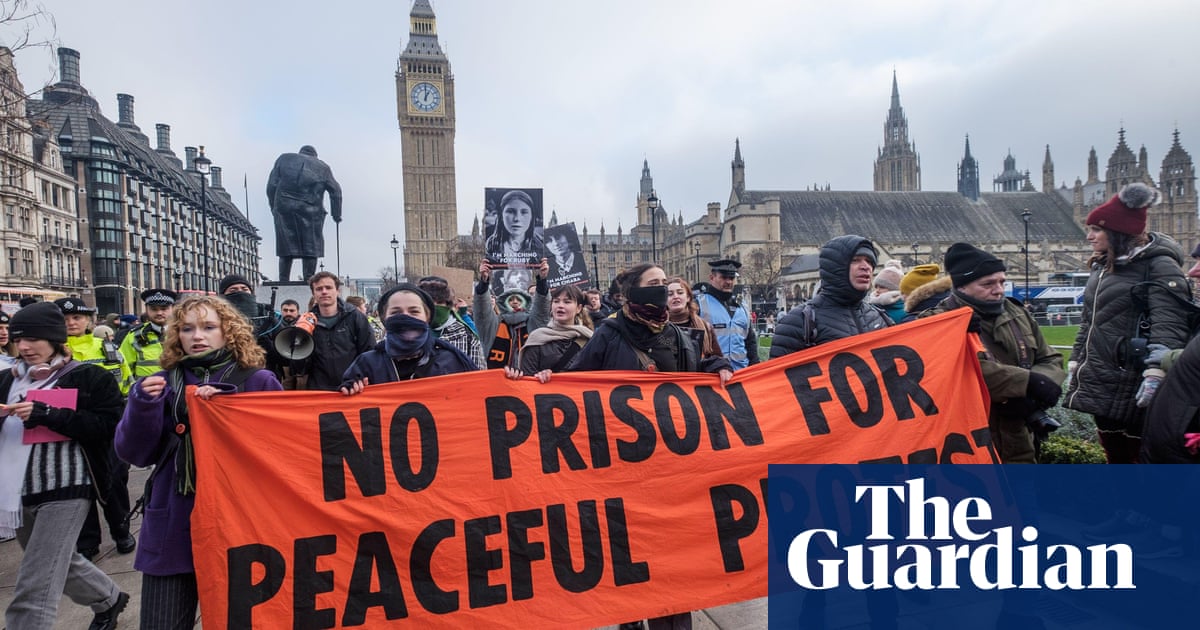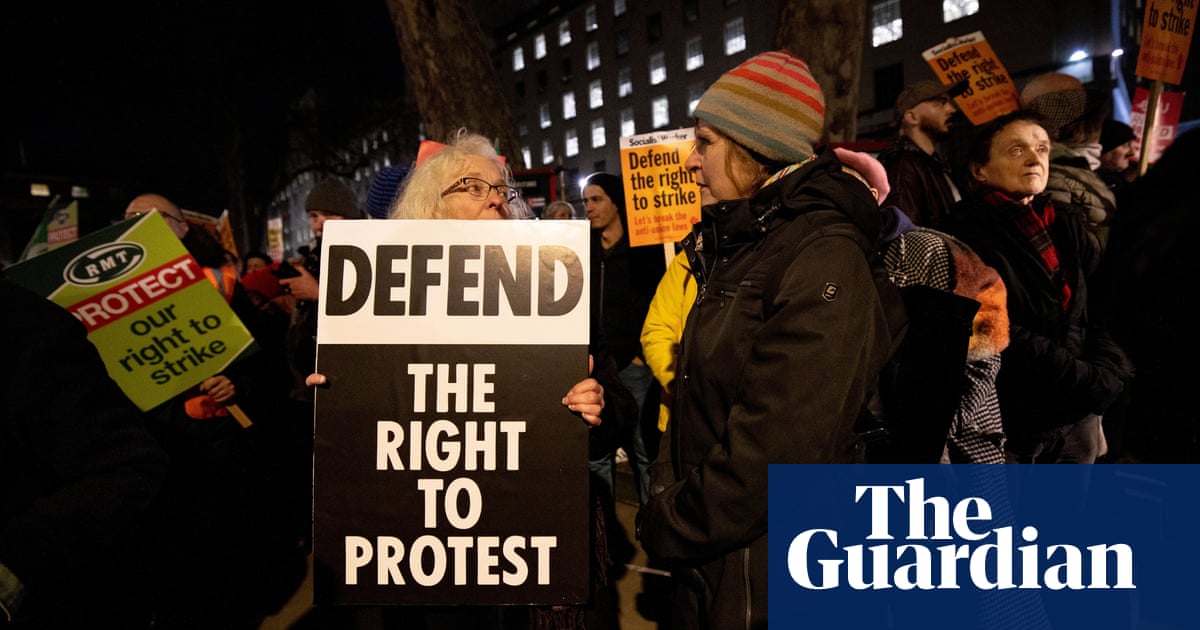
A review of disruptive tactics used by protesters is expected to stop short of demanding that named groups such as Palestine Action and Just Stop Oil should be banned.
The 240-page report, written by the former Labour MP John Woodcock, will instead recommend that groups that use protests to “create mayhem and hold the public and workers to ransom” should be proscribed in future.
The long-trailed review of political violence and extremism is due to be laid before parliament on Tuesday morning. In a break from standard practice, the document will be presented to MPs as a “motion for unopposed return”, publishing the entire report as a Commons paper.
This will give the report the protection of parliamentary privilege, meaning anyone or any group named in the report will be unable to claim they have been defamed by its contents.
Woodcock, now Lord Walney, was first commissioned five years ago to write a report examining disruptive tactics such as blocking roads and entrances to buildings. There are expected to be more than 40 recommendations in the review into political violence and disruption.
The measures are designed to clamp down on protesters for disruptive incidents in which businesses lose thousands of pounds in trade and employees are delayed getting to work.
It is understood the recommendations of the report will not name individual groups that should be banned. However, the groups Palestine Action, Just Stop Oil and Extinction Rebellion are highlighted throughout the report for using “dangerous” tactics.
The report is expected to say that banning terror groups has made it harder for them to plan crimes and that approach should be extended to “extreme protest groups”.
Woodcock has previously repeatedly named Palestine Action, aimed at disrupting the arms trade, and climate campaigners Just Stop Oil as groups engaged in “criminal tactics” as he trailed his proposals and suggested they could be banned. The Guardian understands neither group has been given a right of reply to the contents of the report.
In a letter to Palestine Action, a government lawyer said the report would include “discussion” of its protests but it was “unnecessary” to grant the group the opportunity to reply.
Responding to a legal threat to bring a defamation claim over the content of the report, the government lawyer added: “It has been decided that the secretary of state will lay it before the House of Commons using the ‘motion for unopposed return’ procedure; and the report will then be published as a House of Commons paper.
“The publication of the report and all subsequent republication of it will therefore attract the protection of parliamentary privilege … Any claim relating to the content of the report would therefore have no prospect of success.”
Shami Chakrabarti, a Labour peer and human rights advocate, said the government was hiding behind procedure.
“It is ironic that a government that consistently attacks protesters by press releases and reading the riot act to police chiefs now hides behind arcane procedure and abuse of parliamentary privilege,” she said.
“There is no reason at all why groups and the people they represent should not have had the opportunity to answer damaging charges made against them in this heavily trailed report. But natural justice, like equal treatment and freedom of speech and association are inevitable casualties in the desperate distraction of culture wars.”
The review is expected to call for protest groups that use tactics such as blocking roads or entrances to buildings to pay compensation to people whose lives they disrupt.
The report also recommends that teachers should be given protection from claims of blasphemy by religious groups. It has been widely reported that the review will also recommend further protections for MPs who have been targeted at their homes and offices.
A Home Office spokesperson said: “Extremism of any kind has no place in our society and we will not tolerate tactics that set out to intimidate, threaten or cause disruption to the law-abiding majority.
“We will consider the report’s final recommendations extremely carefully and will respond in due course.”












